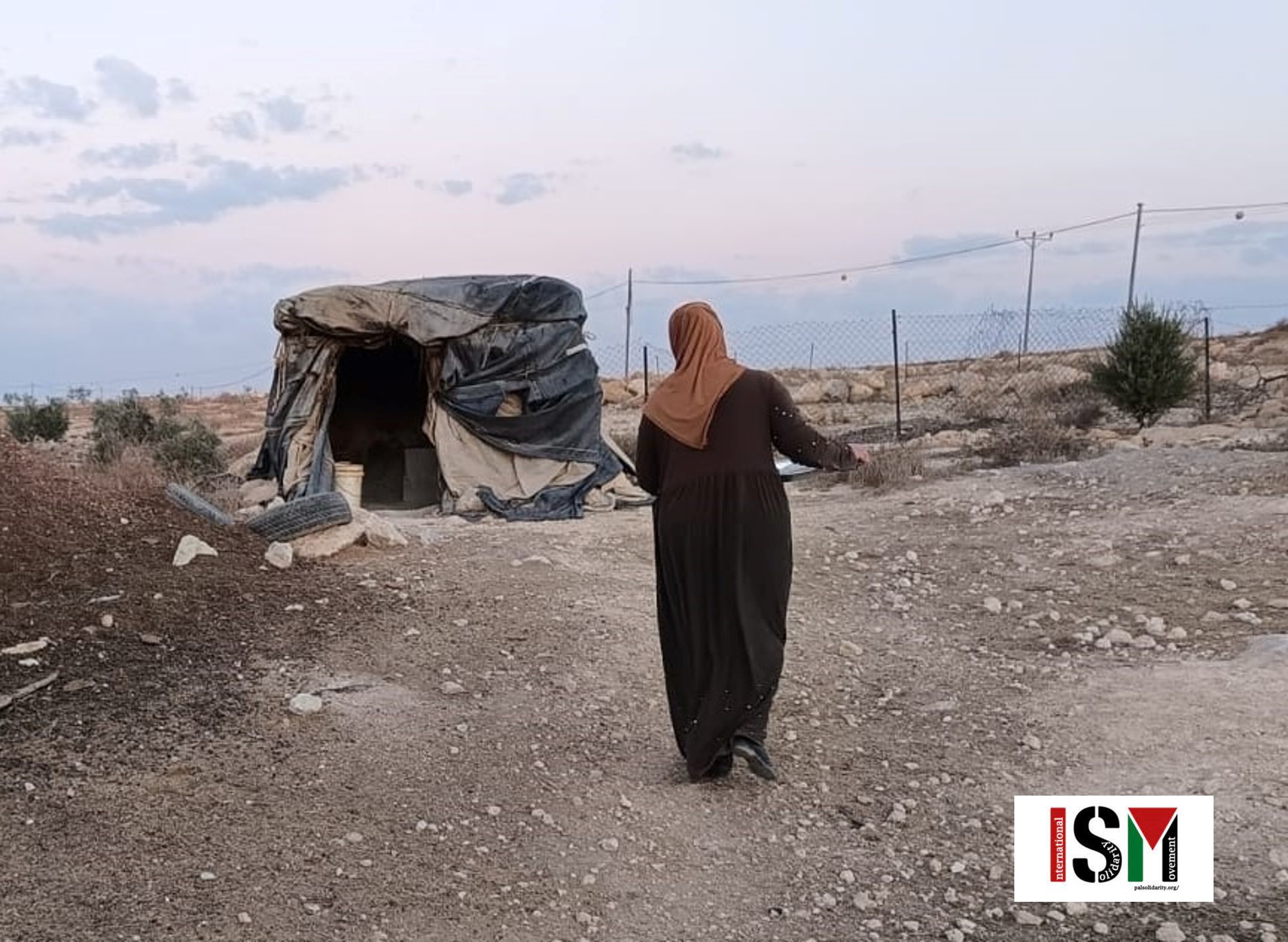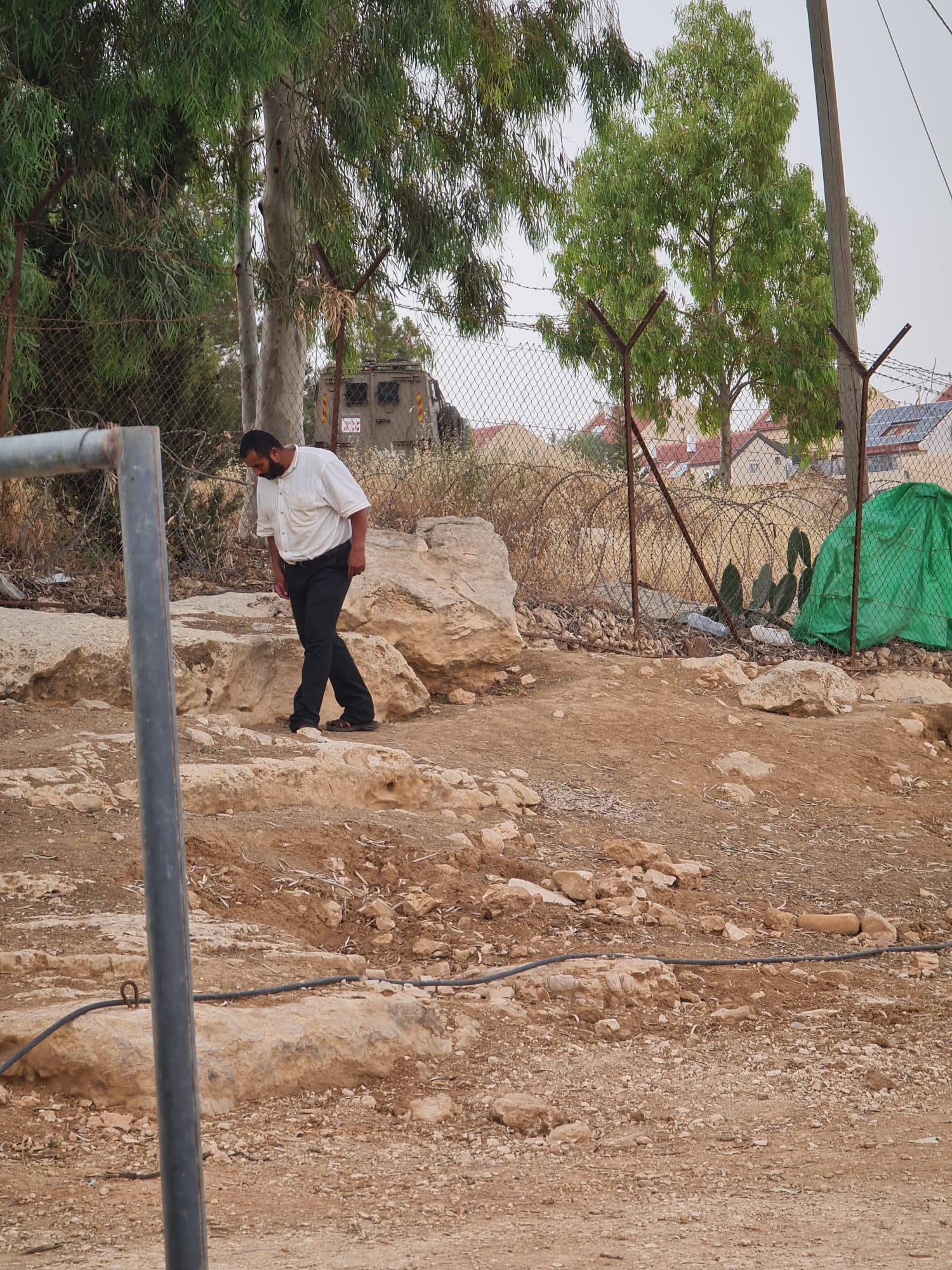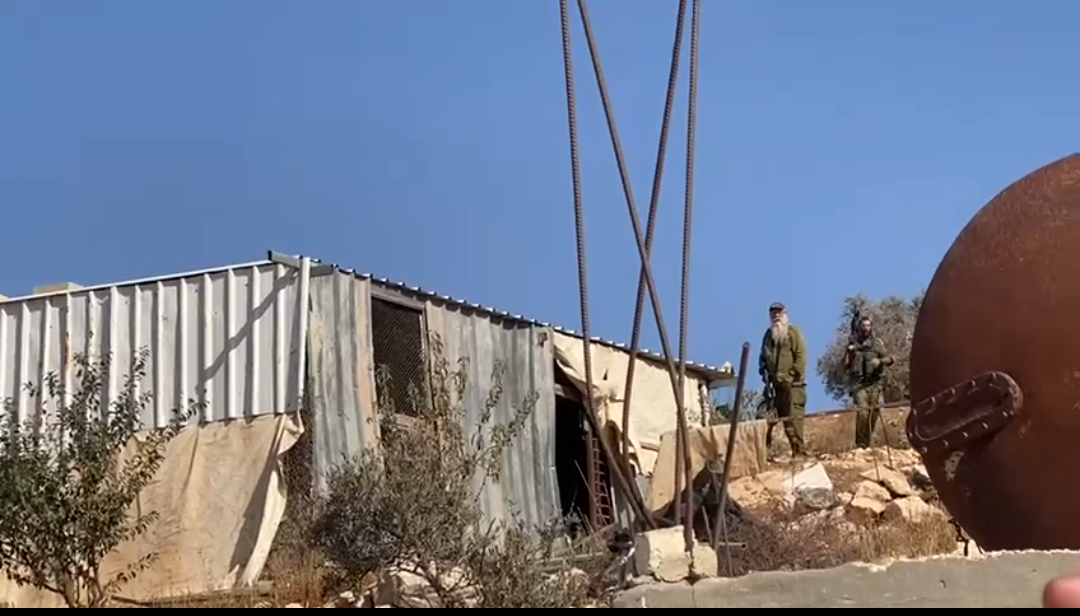Tag: South Hebron Hills
-
We will not be intimidated: Statement and call to action about the attacks on our group in the Israeli media
This week the International Solidarity Movement has been targeted in the Israeli media. Articles have appeared naming and showing pictures and videos of ISM Volunteers and Israeli activists accusing them of spreading ‘a false campaign against settler violence’ and of being Hamas supporters and ‘Nazi helpers’. In the current atmosphere of violence against dissent this…
-
Revenge attacks in Masafer Yatta
16 October, 2023 | International Solidarity Movement | Masafer Yatta In the week since Israel began its onslaught on Gaza, soldiers and settlers have bulldozed homes, carried out night raids and attacked Palestinians across the Masafer Yatta region. Occupation forces have taken advantage of the state of emergency to escalate their violence and displacement…
-
Settlers attack in Tuwani, Masafer Yatta
Yesterday afternoon, 12th of October, settlers attacked the village of Tuwani, in the south of Hebron, assaulting the residents, injuring one. The settlers shot live ammunition in the direction of the Palestinians and internationalists in the village. They also raised Israeli flags on the Palestinians’ land. Local sources reported that these were settlers wearing army…



